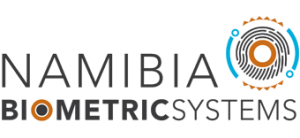Why Biometrics in Healthcare
National healthcare systems in the 21st century generally face the following challenges: an aging population; increase in long-term illness; better survival rates due to improved health technologies; shortage of skilled health care workers; health inequality; and increased expectations in the healthcare system to deliver a world class service to its citizens. This has resulted in a need for a healthcare system which efficiently utilizes the interaction between hospital patients and care providers to achieve maximum impact on health outcomes. In addition, the healthcare system must effectively utilize the scarce financial and human resources. This has paved a way for biometrics in hospitals. Some of the benefits of biometric based solutions are as follows:
Patient Focused Care: Generally patients have limited access to their health information as this information is stored in many different locations across the health care system. This health information could be stored in paper based form or a combination of electronic and paper based forms. The main problem of such a system is that it relies on the patient’s knowledge of their health information. This has the risk of diagnosis or treatment errors due to incomplete or inaccurate information being provided at the point of care. It is important to realise the burden put on both patients (in some cases patients might be mentally ill) and the healthcare providers. It is a big task to expect senior citizens to remember all their healthcare history. A patient’s medical record stored in a biometric based system will ensure the right patient health information is electronically available to authorised care provider at the right time to enable informed care and treatment decisions.
Efficiency: Generally patients end up repeating the same information to multiple care providers which could result in patients receiving duplicate treatment. Biometrics based solutions ensures that patients rely on the health system to effectively coordinate their healthcare information. In addition, biometric solutions results in better patient information, better diagnosis which minimize medicine wastage (saving the healthcare money) and provide healthcare management with vital statistical data for better management. Healthcare providers will be able to make more informed decisions as a result of better access to accurate and complete consumer health information. Biometric based healthcare systems provide healthcare providers better access to improved evidence base for treatment decisions.
However, implementing biometric based solution has its own challenges and requires consultations as the costs of getting such a project wrong can be significant.
More information on the implementation of biometrics based solutions can be requested from info.@namibiabiometricsystems.com.
